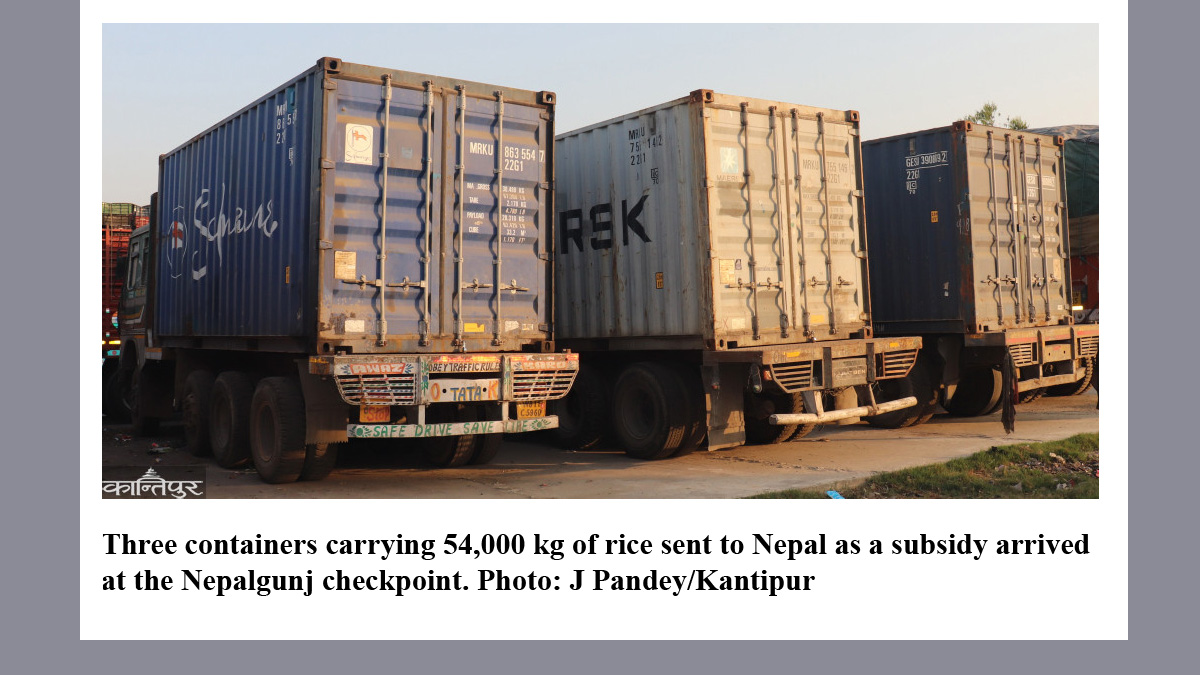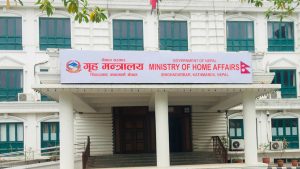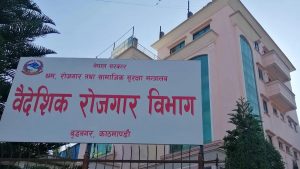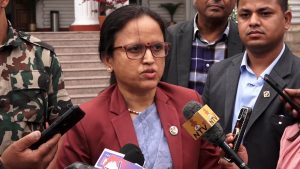
Courtesy News
Nearly 54,000 kg of substandard subsidized rice by WFP stranded at check post
Authorities have barred a huge amount of rice being brought to Nepal from the World Food Programme office in Italy through Indian port at a revenue office in the country’s remote far-western district in Nepalgunj, after finding that the product was substandard.
Officials said that the 54,000 kilograms of the rice was wet, smelly, and visibly rotten and thus labeled ‘unfit for consumption’, after undergoing standard tests.
The WFP had brought the rice to feed school children around remote areas as a part of a subsidy provided by the UN agency.
This news was written by senior journalist J Pandey in Kantipur National Daily. We have copied this news from the Nepali online version of Kantipur.
According to news, the rice brought from Italy to Nepalgunj by sea via Indian route was found to be of poor quality when tested by the Food Import Export Quality Certification Office. Three containers with rice have been stopped at customs.
It is reported that, in the past, WFP used to pass the customs inspection without undergoing physical testing of the subsidized food products and provide clearance through ‘online customs’ self-declaration. After noticing faults in the system, authorities undertook a quality test of the rice this year.
On January 29, three large containers of rice that arrived through the Jamuna Rupaidiha crossing were sent to the quality certification office by the Nepalgunj customs office. During the examination and inspection, the office gave a report that the rice was inedible.
“The smell came from the rice. During the inspection, it was found to be wet,” said Netra Bogti, technical assistant of the Food Import Export Quality Certification Office, “thus a letter has been sent to the customs saying that it is not suitable to import.”
Santosh Dahal, head of quality certification office, said that the rice brought to Nepalgunj under the notification number 2215 is not importable. “It was found that the rice sent by customs for testing had an unnatural smell,” he said. “Such rice is not importable.”
Even the rice sent by a responsible organization like WFP was found to be un importable and the customs has banned the importation.
Dilluprasad Sharma, Information Officer of Nepalgunj Customs Office, said, “Since any item imported to Nepal from abroad has to be tested, the quality of WFP’s rice has been checked and tested.”
Three Indian containers carrying rice from there, numbered WB 03 DO 107, WB 11 C 5960 and NL 01 AD 7105, came to Nepal on January 29 through Jamuna Pass.
Chief Customs Officer Nar Bahadur Thapa said that the container had to be stopped based on the report that the rice was soaked with water and was not even edible. Three containers of rice along with its driver have been stuck at customs since January 29 due to the quality not being verified. Drivers say they are forced to eat and live in containers.
Meanwhile, the expressing dissatisfaction with the quality testing done by the Nepali side have been taking the stand that they should be able to bring rice uninterruptedly into the country.
Sources say that they have also pressured the Customs Department and the Food Technology and Quality Control Department to release the rice.
However, both the exchange agency and the customs have refused to release the containers with substandard rice.
WFP officials are planning to send the rice to Karnali and hill districts of Sudurpaschim Province. Kantipur has mentioned in the news that when they tried to contact the officials, they could not get in touch with them.
In the news of Kantipur, 13 years ago in May, June and July, WFP distributed rotten rice in the hilly districts including Jajarkot.
Shortly after that 300 people died in hilly districts including Jajarkot, due to diarrhea. Some rights activists alleged that WFP’s rice was one of the factors in the spread of diarrhoea. At that time the government defended WFP.















Comments